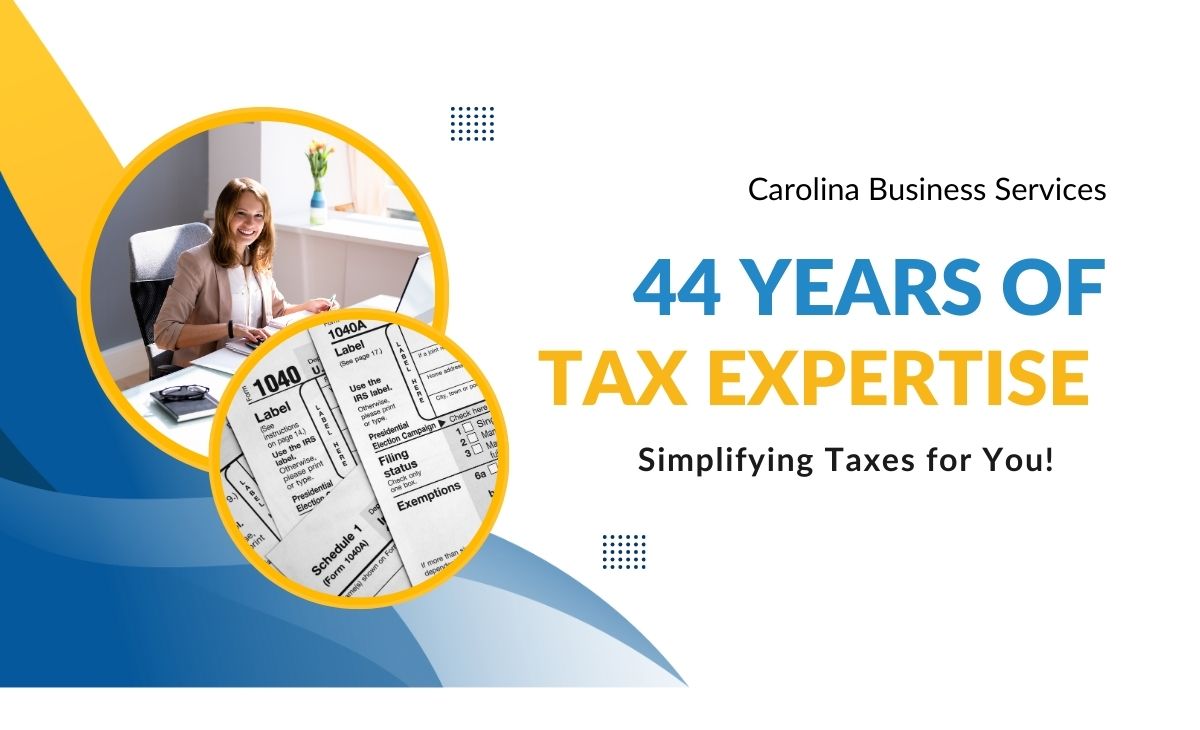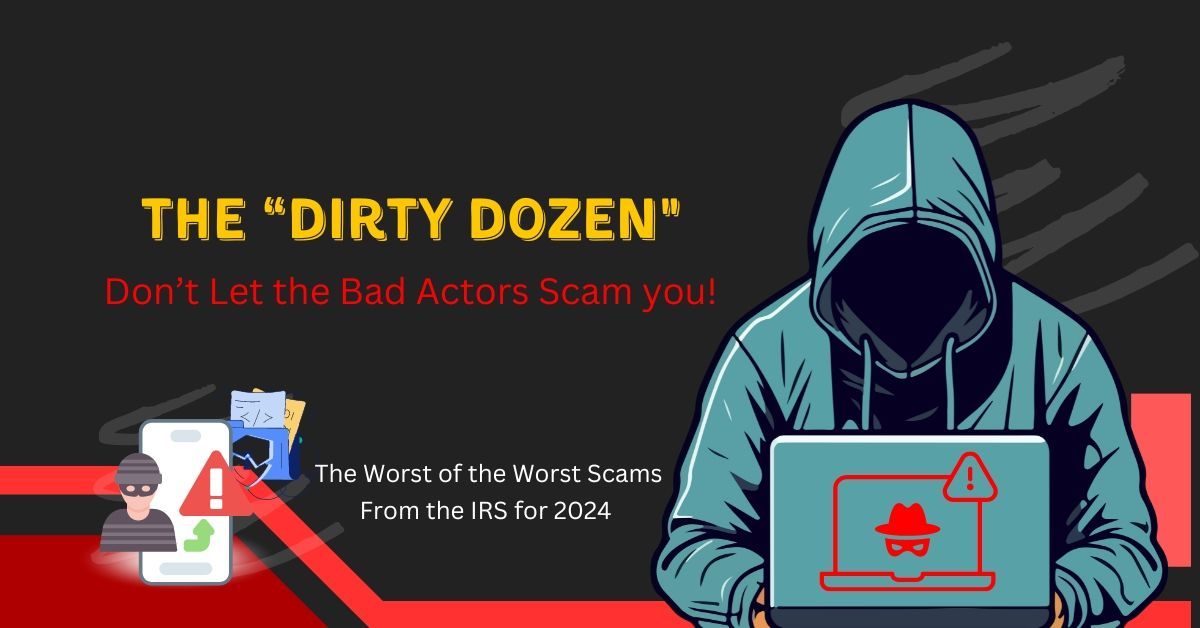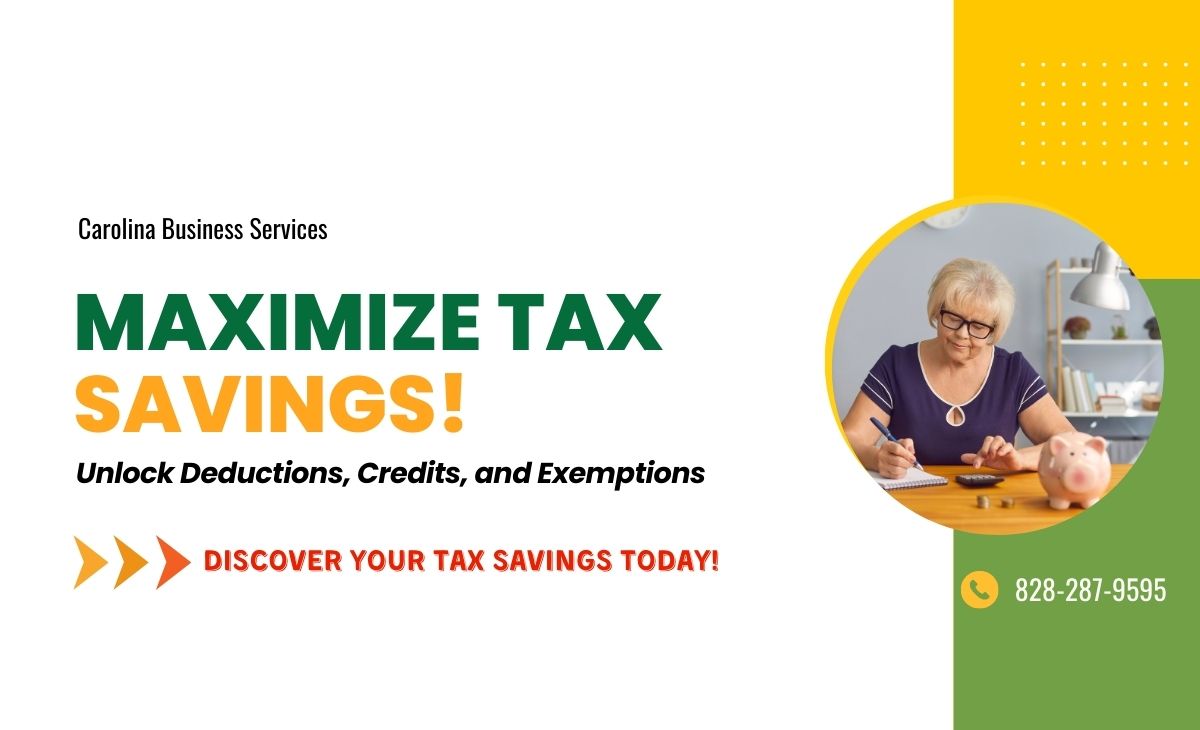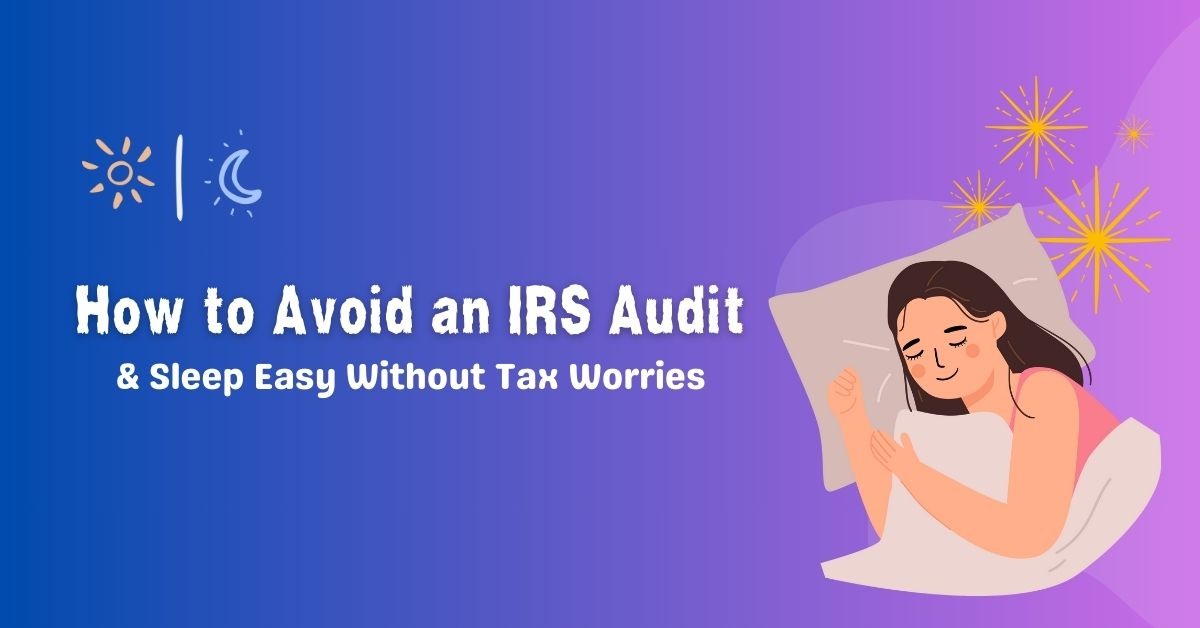Small Business Owner Tax Guide: Avoid Costly Mistakes
How to Avoid Tax Mistakes
That Can Cost Your Business Money
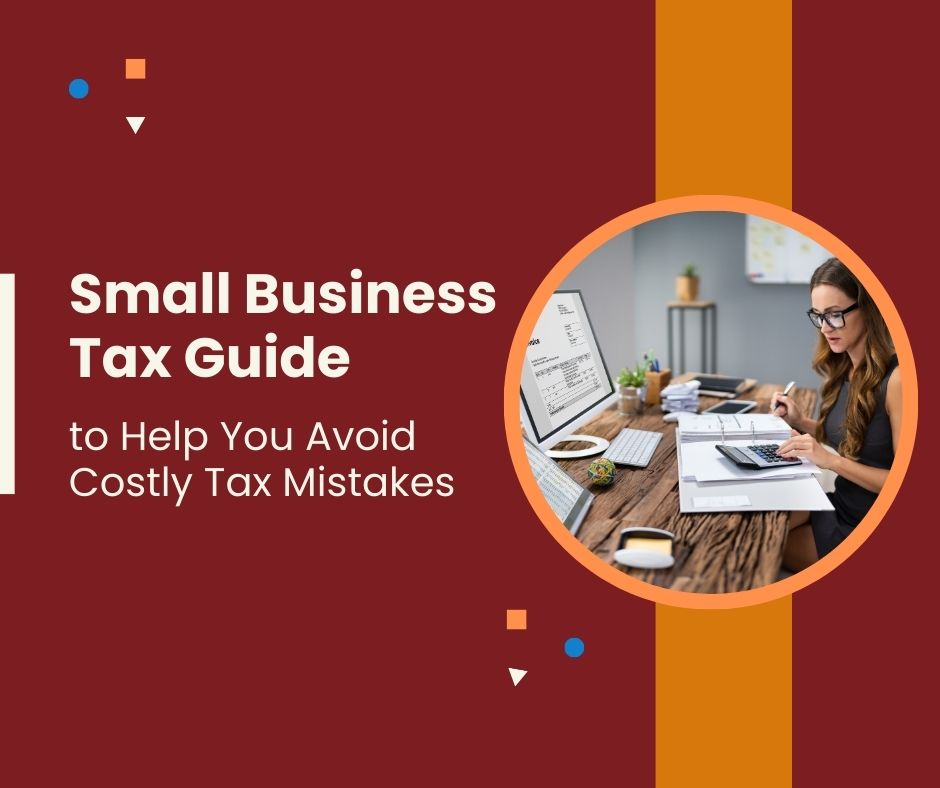
With 44 years of tax expertise, we've seen just about every tax situation imaginable. Our mission has always been straightforward: making taxes simpler for you.
After helping thousands of local businesses with their tax preparation over more than four decades, we've seen firsthand how certain mistakes can impact your bottom line – and your stress levels during tax season.
The good news? Most common tax mistakes are entirely preventable. Let's walk through the key areas where we see business owners run into trouble, and more importantly, how to avoid these pitfalls.
1. Overlooking Deductions and Credits
Tax laws change frequently, and keeping up with available deductions and credits can be challenging while running your business. Some commonly missed opportunities include:
- Home office deductions
- Vehicle expenses
- Professional development and training costs
- Health insurance premiums
- Retirement plan contributions
- Business startup costs
Action Step: Consider scheduling a mid-year tax planning session with your accountant and/or tax professional to identify potential deductions and maintain proper documentation throughout the year.
Refer to the IRS Detailed Information: Credits and Deductions for Businesses
2. Incorrectly Claiming Business Expenses
Claiming personal expenses as business deductions or exaggerating costs to lower tax liability can lead to serious consequences, including an IRS audit. The IRS scrutinizes deductions that seem excessive or inconsistent with industry standards, making it crucial for small business owners to maintain accurate records and only claim legitimate expenses.
What Qualifies as a Business Expense? A business expense must be ordinary, meaning it is commonly accepted in your industry, and necessary, meaning it is essential for running your business effectively. Expenses that are uncommon for your industry may raise red flags with the IRS and increase audit risk. Keeping proper documentation and a clear business purpose can help justify these expenses.
IRS Red Flags:
- Excessive meal and entertainment expenses.
- Personal expenses claimed as business costs.
- High deductions compared to income.
- Business expenses that are unusual for your industry.
Action Steps: Maintain documentation (receipts, invoices, business purpose notes) for every deduction. Consult a tax expert before claiming questionable expenses.
Reference: IRS Guide to Business Expense Resources
3. Mixing Personal and Business Finances
One of the most frequent issues we encounter is business owners using the same account for personal and business transactions. We get it – when you're just starting out, it might seem easier to run everything through one account. However, this practice can create a massive headache when it's time to sort through your expenses at tax time. The IRS specifically recommends maintaining separate business accounts.
Action Step: Open separate accounts and keep all business transactions separate, no matter how small. Even a cup of coffee for a client meeting should go through your business account.
This separation not only makes tax preparation more straightforward but also provides better protection in case of an audit. Plus, it gives you a clearer picture of your business's financial health throughout the year.
4. Misclassifying Workers
The distinction between employees and independent contractors isn't always clear-cut, but getting it wrong can be costly. We've seen businesses face significant penalties for incorrectly classifying employees as contractors.
Key Differences:
- Employees – Work under your control, use company tools, receive W-2s, and require payroll tax withholding.
- Independent Contractors – Work independently, provide their own tools, and work without employer-provided benefits. Rather than a W-2, they receive a 1099-NEC at year-end.
Consider these factors when classifying workers:
- Do you control how they perform their work?
- Do you provide their tools and equipment?
- Is the relationship ongoing and regular?
- Is this work a key aspect of your business?
If you answered yes to most of these questions, the worker might need to be classified as an employee. When in doubt, consult with a tax professional – it's better to get it right from the start.
Action Step: Review your worker classifications quarterly and document your reasoning for each classification decision.
For detailed guidance, refer to the IRS Worker Classification Guidelines.
5. Poor Record-Keeping Habits
Remember that box of receipts you promised yourself you'd organize "someday"? We've all been there. But inadequate record-keeping can lead to missed deductions and potential issues with the IRS. We've seen clients lose out on thousands of dollars in legitimate deductions simply because they couldn't properly document their expenses.
Implement a system to track your income and expenses throughout the year. Whether you prefer digital tools like QuickBooks or a simple spreadsheet, the key is consistency. Make it a habit to record transactions weekly, if not daily. Store digital copies of receipts – they fade over time, and the IRS won't accept illegible documentation.
Action Step: Create your "15-Minute Friday" routine:
- Digitize all receipts from the week
- Categorize expenses in your accounting system
- Flag any unusual transactions for review
- File any tax-related correspondence
Pro Tip: Use the "2-folder system" - one digital folder for tax-deductible expenses and another for tax-related documents. This simple organization method can save hours during tax season.
6. Missing Deadlines and Extensions
Tax deadlines aren't suggestions, and missing them can result in substantial penalties. While April 15th is well-known, business owners need to track multiple deadlines throughout the year, including:
- Quarterly estimated tax payments
- Payroll tax deposits
- 1099 and W-2 submissions
- State and local tax obligations
Action Step: Create a tax calendar at the beginning of each year and set reminders at least two weeks before each deadline. If you need more time, file for an extension – but remember, an extension to file is not an extension to pay.
7. Not Planning for Taxes Year-Round
The biggest mistake we see:
Treating tax preparation as a once-a-year event. Successful tax management requires year-round attention. Waiting until March to think about your taxes limits your options for tax-saving strategies.
Work with your tax professional to:
- Project your tax liability throughout the year
- Plan major purchases or investments strategically
- Time income and expenses for optimal tax benefit
- Structure your business properly
- Stay informed about tax law changes affecting your industry
Action Step: Download our FREE Tax Planning Checklist
Quick Tax Health Checklist
- Separate business and personal accounts maintained
- Regular backup system for receipts and records in place
- Worker classifications documented and reviewed
- Tax deadlines calendar created
- Regular time blocked for financial review
- Professional relationship established for tax guidance
- System in place for tracking deductible expenses
- Business structure reviewed annually
The Value of Professional Help
While DIY tax software has its place, nothing replaces the value of working with an experienced tax professional who understands your business. We've seen countless cases where professional guidance has saved businesses more than the cost of our services – often by identifying opportunities or preventing costly mistakes before they happen.
Think of your tax professional as a partner in your business success. Regular communication throughout the year can help you make informed decisions that impact your tax situation positively.
Moving Forward
Tax management doesn't have to be overwhelming. Start by addressing any of these areas where you know you could improve. Small changes in your tax management approach can lead to significant benefits for your business.
For over 4 decades, Carolina Business Services has been making taxes simpler for business owners just like you. We understand the challenges you face because we've helped thousands of businesses navigate them successfully. Don't hesitate to reach out if you need guidance on implementing any of these suggestions or want to discuss your specific tax situation.
Your business's financial health is too important to leave to chance. Take control of your tax situation today, and give yourself the peace of mind that comes from knowing you're on top of your tax obligations.
For the most current tax information and updates, visit the IRS Small Business and Self-Employed Tax Center.
Taxing Times
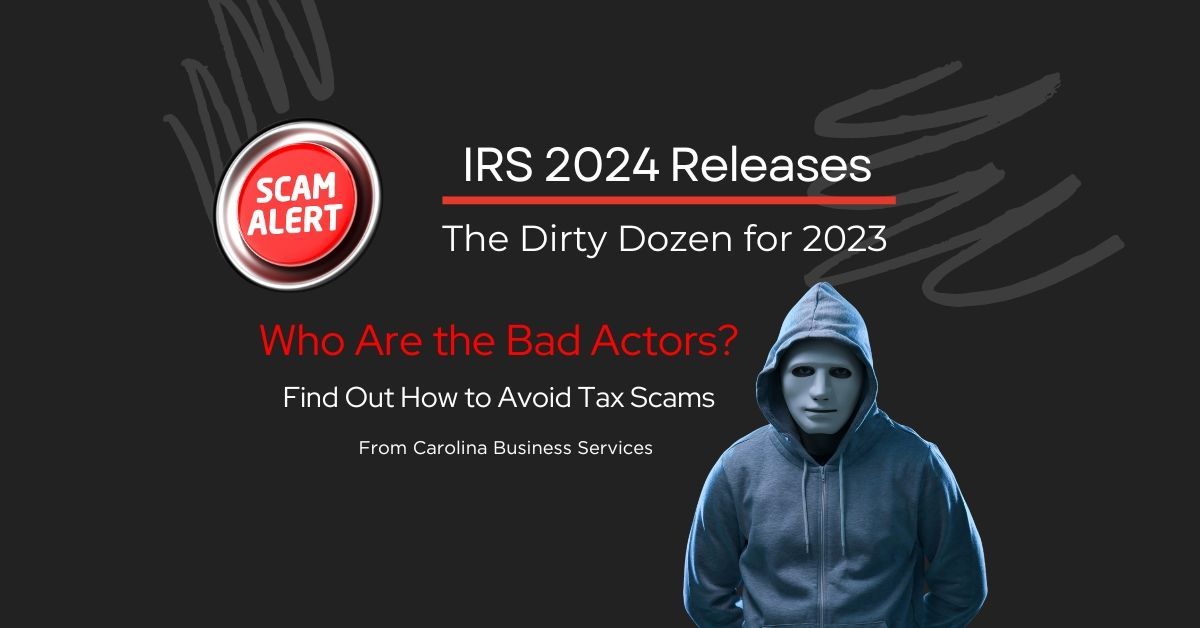
Get In Touch

About Carolina Business Services
For over 40 years, our firm has been a trusted provider of income tax preparation services to individuals and small businesses across Spindale, Rutherfordton, and Forest City, NC. Our vast expertise and knowledge allow us to handle tax preparations - from simple to complex - across all 50 states and for US citizens living abroad.
Our personalized and efficient tax preparation services are designed with you in mind, and our friendly and fast approach means you can count on us to work for you.
So why wait?
Contact us today!
Centrally Located
Rutherford County, North Carolina
Copyright © 2023 Carolina Business Services - All Rights Reserved.


